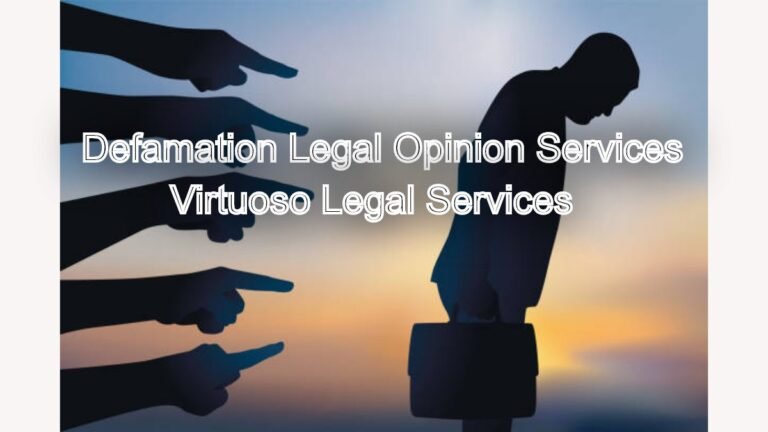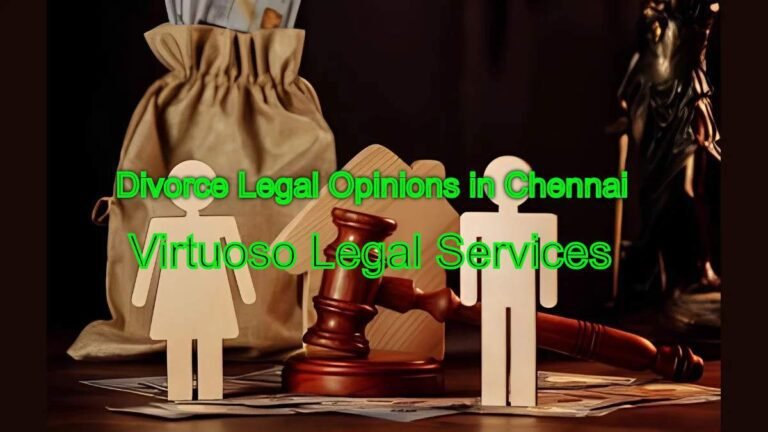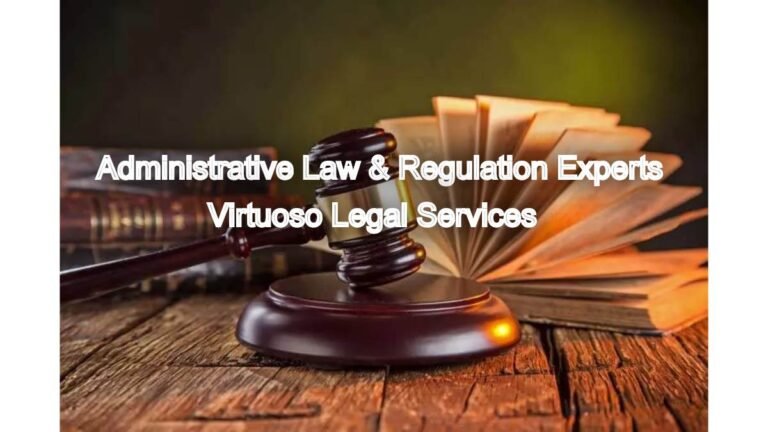Recover What’s Due: Debt Recovery Legal Specialists
Recover What’s Due: Businesses thrive on cash flow. Individuals also rely on financial stability. Sometimes, however, money owed to you remains unpaid. This can severely impact your operations. It can create significant financial strain. You may feel helpless. The process of recovering debts can seem daunting. It often involves complex legalities. Fortunately, specialized legal assistance is available. Debt recovery legal specialists provide crucial support. They help you reclaim your rightful dues. Here at Virtuoso Legal Services – Expert Legal Solutions 24×7, we understand these challenges. We offer dedicated and effective debt recovery solutions. We aim to protect your financial interests.
Recover What’s Due: Debt Recovery Legal Specialists: Virtuoso Legal Services
Understanding Debt Recovery
Firstly, it is vital to define debt recovery. This process involves pursuing payment. It targets money owed by a debtor. The debtor might be an individual. It could also be a business entity. The debt itself can arise from various sources. It might stem from unpaid invoices. Could be due to a loan default. It might even arise from breach of contract. Therefore, the nature of the debt determines the recovery strategy. Effective debt recovery requires a systematic approach. It often demands legal intervention. Hence, professional expertise becomes indispensable.
Moreover, debt recovery is more than just making calls. It involves understanding legal frameworks. Means identifying the most suitable recovery method. It also includes adhering to all legal compliances. Consequently, navigating this field without expert knowledge can be risky. It might lead to prolonged disputes. It could even result in financial losses. Thus, engaging legal specialists is a prudent step. They ensure the process is efficient and lawful.
Legal Avenues for Debt Recovery
Subsequently, explore the diverse legal avenues. Various statutes govern debt recovery in India. Each offers a specific pathway.
1. The Code of Civil Procedure, 1908 (CPC):
Generally, this is a fundamental law. It governs civil suits. You can file a civil suit for recovery of money. This is a common method. It applies when other options are exhausted. It involves a detailed court process. This includes filing a plaint. It involves presenting evidence. It also requires cross-examination of witnesses. A money decree is the desired outcome. This decree is a formal order from the court. It directs the debtor to pay the specified amount.
2. The Negotiable Instruments Act, 1881:
Furthermore, this Act is highly relevant. It specifically deals with dishonored cheques. If a debtor issues a cheque that bounces, this Act applies. Section 138 is particularly powerful. It makes dishonor of a cheque a criminal offense. Thus, you can file a criminal complaint. This adds significant pressure on the debtor. It can lead to imprisonment or hefty fines. Therefore, it is a very effective tool for recovery.
3. The Indian Contract Act, 1872:
Moreover, contract breaches often lead to debts. This Act governs all contracts. If a contract is breached, and money is due, this Act provides recourse. You can seek damages. You can enforce specific performance. Therefore, understanding contract terms is crucial. It helps in establishing the debt. It supports the claim for recovery.
4. The Insolvency and Bankruptcy Code, 2016 (IBC):
Additionally, for larger, more complex debts, especially from corporate debtors, the IBC offers a robust framework. This Code aims for timely resolution of insolvency. It applies to companies and individuals. A Corporate Insolvency Resolution Process (CIRP) can be initiated. This is done by an operational creditor or a financial creditor. If the debt exceeds a certain threshold (currently ₹1 Crore for corporates), this avenue is powerful. It can lead to liquidation if resolution fails. Hence, it provides a strong mechanism for creditors.
5. Summary Suits (Order XXXVII of CPC):
Specifically, for clear-cut debts, a summary suit is an expedited process. It applies to suits based on bills of exchange, promissory notes, or written contracts. The key advantage is speed. The debtor cannot defend the suit as a matter of right. They must obtain leave from the court. This significantly reduces delays. Therefore, it is a preferred option for straightforward recovery cases.
The Debt Recovery Process: A Step-by-Step Approach
Critically, a systematic approach maximizes recovery chances. Our firm follows a structured process.
Step 1: Due Diligence and Documentation Review:
Initially, we thoroughly review all relevant documents. This includes contracts, invoices, agreements, and communication. We assess the strength of your claim. We identify any potential legal challenges. This initial scrutiny is vital. It forms the basis of our strategy.
Step 2: Sending a Legal Notice:
Subsequently, a formal legal notice is dispatched. This notice demands payment. It specifies the amount due. It outlines the consequences of non-payment. This is often the first formal step. It indicates your intent to pursue legal action. Sometimes, a well-drafted legal notice prompts payment. It avoids further litigation.
Step 3: Pre-Litigation Negotiations and Mediation:
Moreover, we actively engage in negotiations. We explore amicable settlement options. Mediation can be a powerful tool. It allows parties to discuss solutions. It can lead to mutually agreeable terms. Such settlements save time and costs. They avoid protracted court battles. Therefore, we always prioritize a peaceful resolution.
Step 4: Initiating Legal Proceedings:
However, if pre-litigation efforts fail, we proceed with legal action. We determine the most appropriate legal avenue. This could be a civil suit. It might be a summary suit. It could also involve a complaint under the Negotiable Instruments Act. We meticulously draft and file the necessary pleadings. We ensure all legal formalities are observed.
Step 5: Litigation and Enforcement of Decree:
Furthermore, we represent you throughout the litigation. This includes court hearings. It involves presenting evidence. It means arguing your case compellingly. Once a favorable decree is obtained, enforcement is the next step. A decree, by itself, does not automatically recover money. We initiate execution proceedings. This involves compelling the debtor to pay. It might include attachment of assets. Could involve sale of property. It can also lead to arrest in certain circumstances. Hence, enforcement is crucial for actual recovery.
Key Legal Terms in Debt Recovery
While dealing with debt recovery, several terms are paramount. Firstly, Creditor: The party to whom money is owed. Conversely, Debtor: The party who owes money. Default: Failure to repay a debt. Plaint: The legal document initiating a civil suit. Defendant: The party against whom a legal action is brought (similar to a Debtor in a suit).
Moreover, Decree: A formal order of a court, typically directing payment. Execution Petition: An application filed to enforce a court’s decree. Attachment of Property: A legal process where a debtor’s assets are seized. This prevents their disposal. It secures the debt. Furthermore, Insolvency: A state where a person or entity cannot pay their debts. Bankruptcy: A legal status of an insolvent person. Promissory Note: A written promise to pay a specific sum. Bill of Exchange: A written order for one party to pay another. Understanding these terms empowers you. It clarifies the legal landscape.
Why Choose Debt Recovery Legal Specialists?
Navigating debt recovery alone is fraught with challenges. The legal complexities are immense. The time commitment can be substantial. Debtors often employ delaying tactics. They might attempt to evade payment. Therefore, engaging specialized legal counsel is invaluable. They possess in-depth knowledge of debt recovery laws. They understand court procedures. Are skilled negotiators. They are also tenacious litigators. They streamline the entire process. Ensure compliance with all legal requirements. This minimizes risks. It maximizes your chances of successful recovery.
At Virtuoso Legal Services – Expert Legal Solutions 24×7, our team is dedicated. We are experienced debt recovery specialists. We craft bespoke strategies. Prioritize efficient and cost-effective solutions. We handle all aspects of the recovery process. This ranges from initial notice to decree enforcement. We provide transparent communication. We keep you informed at every stage. Our proactive approach ensures timely action. We work tirelessly to recover what’s due to you. We protect your financial well-being.
FAQs: Debt Recovery in India
We assist with recovering various types of debts. These include unpaid invoices, defaulted loans, money due from breach of contract, and dishonored cheques.
The typical first formal step involves sending a comprehensive legal notice. This notice formally demands payment of the outstanding amount, specifies the basis of the debt, and outlines potential legal consequences if the payment is not made within a stipulated time frame.
A summary suit is a special, expedited legal procedure under Order XXXVII of the Code of Civil Procedure, 1908. It is used for clear-cut debts where there is strong documentary evidence, such as unpaid bills of exchange, promissory notes, or written contracts. Its main advantage is that it limits the debtor’s ability to defend the suit, leading to quicker judgments compared to regular civil suits.
Generally, in India, civil debts do not lead to imprisonment. However, there are exceptions. For instance, under Section 138 of the Negotiable Instruments Act, 1881, the dishonor of a cheque is a criminal offense, which can result in imprisonment if proven. Additionally, in rare civil execution proceedings, willful defiance of a court order to pay may, in very specific circumstances, lead to civil detention.
The duration of the debt recovery process varies significantly depending on the method chosen and the complexity of the case. A simple legal notice might yield results in weeks. A summary suit can conclude in a few months. Regular civil suits or proceedings under the Insolvency and Bankruptcy Code can take longer, potentially extending to several months or even years, especially if appeals are involved.
Conclusion
In conclusion, outstanding debts can be a significant burden. They hinder growth. They cause stress. However, effective legal avenues exist. They facilitate robust debt recovery. The Code of Civil Procedure, Negotiable Instruments Act, Indian Contract Act, and Insolvency and Bankruptcy Code offer powerful tools. Navigating these requires specialized expertise. Virtuoso Legal Services – Expert Legal Solutions 24×7 is your trusted partner. We bring comprehensive knowledge. Offer strategic litigation skills. We are committed to recovering your dues. Therefore, if you are facing unpaid debts, do not delay. Seek professional legal assistance promptly. We are here to empower you. Help you reclaim your financial stability. We ensure justice is served.
Read More
- Defending Digital Spaces: Cyber Crime Disputes Legal Services
- Ensuring Customs Compliance: Customs Law Legal Opinions
- Fair Representation: Criminal Litigation Legal Experts
- Justice Prevails: Criminal Cases Legal Opinions
- Ensure Legal Compliance: Court Order Deed Services
- Insolvency and Bankruptcy Board of India (IBBI):
![Virtuoso Legal Services [Best Legal Opinion Services 24×7]](https://legalopinion.org.in/wp-content/uploads/2023/09/cropped-logo.png)





